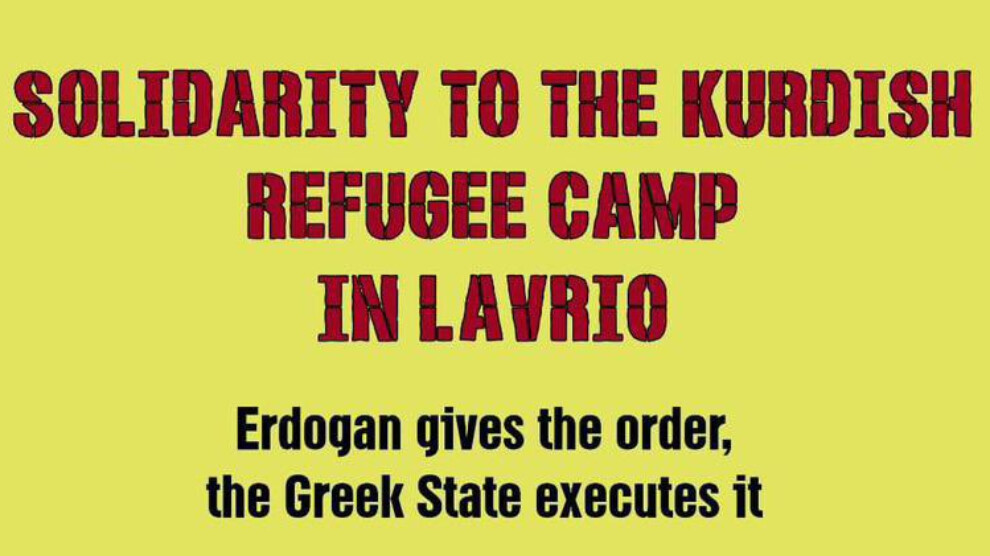Solidarity action with Kurdish refugees this evening in Thessaloniki
An action in solidarity with Kurdish refugees in Lavrio camp will take place this evening in Thessaloniki.
An action in solidarity with Kurdish refugees in Lavrio camp will take place this evening in Thessaloniki.

An action in solidarity with Kurdish refugees in Lavrio camp will take place this evening in Thessaloniki.
The gathering is at 7pm in Tsimiski and Navarino streets and is organized by RiseUp4Rojava.
According to reports, hundreds of police raided the Lavrio refugee camp at 4 am local time on Wednesday.
Around 40 people staying in the camp were detained and transferred to another camp. Police broke the doors of the rooms during the raid, which was protested by Greek civil society organizations.
Lavrio Camp
Lavrio is a town in the Greek province of Attica, about 60 kilometres south of Athens. It is home to one of the oldest refugee camps in Greece. Built in the 1960s for Cold War refugees from the Soviet Union, in the 1980s it was mainly political refugees from Turkey who had escaped the military coup there. Lavrio has since been known as a reception centre for Kurdish refugees and has always been a thorn in Ankara's side. From 2014 onwards, more Kurdish families from Rojava/Northern Syria came to Lavrio, fleeing the attacks of the Islamic State (IS). Most recently, they made up the majority of the residents, but Kurds from Bakur, Rojhilat and Bashur also lived in the camp.
Until a few years ago, the camp was officially recognised by Athens and was run with the help of the Greek Red Cross. But in 2017, the Syriza government surprisingly withdrew state support from the camp. Since then, Lavrio has been a kind of self-administration zone, financed by donations, including from the Kurdish Red Crescent (Heyva Sor a Kurdistanê). The self-administration of the camp worked according to the principle of Democratic Autonomy. There were committees for security, cleanliness, health, women, youth and administration.
With Lavrio, something unique was created throughout Europe. The population of the town of Lavrio, with about 25,000 inhabitants, showed solidarity with the people in the camp, brought food and other donations in kind, and bought their cigarettes in the morning in the small kiosk that the camp ran.